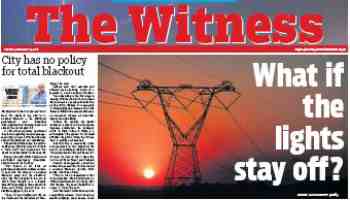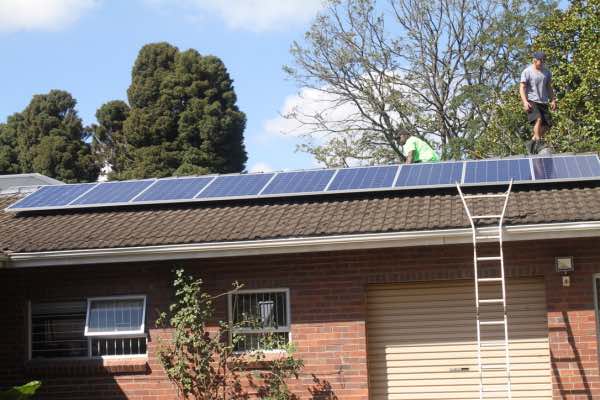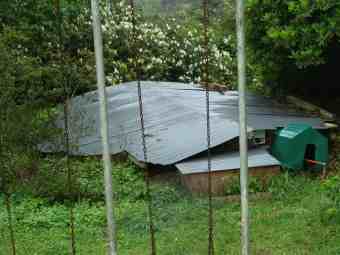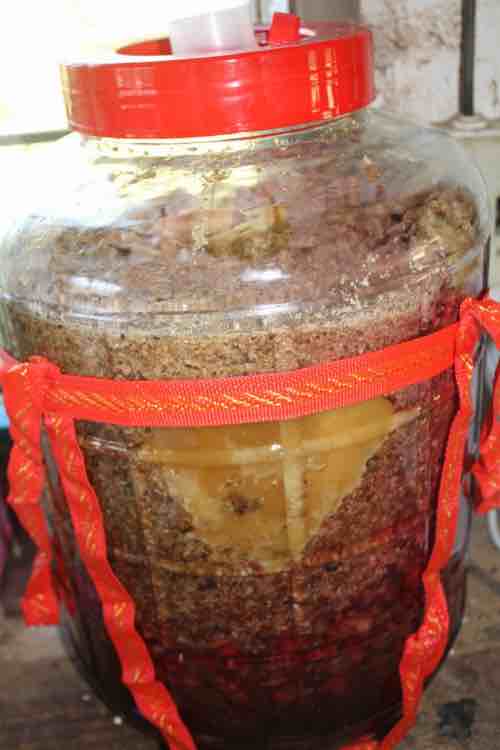- Homepage
- Pascal's wager
Pascal's wager
Pascal's wager suggests that it makes more sense to take a chance accepting and believing certain things even though eventually we may be proved wrong; small losses versus large gains.
Blaise Pascal was an eminent scientist who lived some four hundred years ago. We are all familiar with him; his name is given to the unit of pressure.
Every time we put air into our tyres, say around 2 bars which is 100 kilopascals, we acknowledge him.
Centuries before our time he was playing with ideas concerning probability theory that today are considered old hat. He was a genius.
 Blaise Pascal
Blaise PascalPascal's wager
We shall apply the logic of Pascal's wager to the supply of water to our homes by the utility, in my case the local municipality. It works like this.
- Day Zero will arrive when the taps run dry versus it shall not happen in my lifetime; by reasoning power alone we find ourselves unable to choose between the two alternatives.
- Pascal's wager means you have to make a choice, one or the other; it is not optional. You are obliged to choose.
- It's all about chance; weighing the potential gains and losses.
- If you decide Day Zero will arrive and take some remedial action and you are right, the gains are infinite; you will have plenty of water when everyone else is gasping.
- If you are wrong and Day Zero does not arrive, then you have lost very little; the cost of a few tanks or an underground reservoir. And you still will have free water in any case.
- Pascal's wager demands that you choose one way or another; you cannot sit on the fence.
Religion
"May God never abandon me."
- Blaise Pascal's last words on his deathbed.
Contrary to popular opinion many of the great scientists were religious; Pascal, Galileo and Newton for example were all fervent Christians. Albert Einstein too believed in God.
Pascal's wager is applied to religion as follows.
- A God of creation must exist, the complexity of our world demands it; or no, it's all a myth. By reasoning alone you find it difficult to choose.
- But choose you must; in applying Pascal's wager you cannot be agnostic.
- Pascal adjured us to believe that God does exist. If we are right then the gains are infinite; a happy and fulfilled being. With eternal life to boot thrown in.
- You avoid the infinite loss of an eternity separated from the presence of God; hell.
- If you were wrong then there are only a few finite losses; some pleasures and a luxurious life of self-indulgence.
Solar power
We could equally apply Blaise's wager to the electrical grid.
- The grid will fail, or no we will never have a total blackout. You have to choose, one or the other.
- If you choose the former and the grid does fail the gains are infinite; you have already erected a solar network. You will have an ample supply of electricity when everyone else is starting up their generators.
- If you are wrong then your losses are finite; a fairly large sum of money perhaps wasted. But in any case you will have free electricity for the rest of your life after it is paid off in seven years time.

Pascal's wager
Pascal's wager is a philosophical argument put forward by an eminent scientist.

Bernie's wager is that the grid will fail in South Africa and Day Zero will arrive in his village; so he has installed a solar network and an underground reservoir for storing rainwater as a precaution.
The finite gains have already proved to Bernie that it was the right decision; both are paid off and he has free electricity and water for the foreseeable future. But neither the grid has yet failed nor Day Zero arrived; the utilities still function, albeit erratically.
Bernie has to wait and see if there will be infinite gains; whether the grid will fail and Day Zero arrives.
Actually there have already been infinite gains; Bernie has made his small contribution to the survival of planet Earth.
I will leave it to you to apply the logic of Pascal's wager to "the poles will melt and sea-level shall rise by 100m."
Pascal is also renowned for his plan for the first public bus system in the world, established in Paris in 1662.
Sadly Blaise Pascal died at the tender age of 39 from stomach cancer.

Pascal's wager and the pandemic
It is clear that the virus will not be fully eradicated[3]. And that somewhere between 10 - 30% of us will experience Long Covid after the infection. So let us apply Pascal's wager.
- I will not suffer from Long Covid after the infection; the chances are low.
- No, I might well experience Long Covid; the risk is significant.
Choosing not to make palpable changes of lifestyle means there is a chance of around 20% of significant loss. The gain is better health and protection not only against the virus and its insidious effects but an overall safeguard against diabetes and other comorbidities.
Choosing to believe you might experience Long Covid and making significant changes means great gain of lessened likelihood of the ongoing sequelae of the disease; and the small loss, in the opinion of some anyway, of having to strictly limit refined carbs.
Understanding how net carbs work is the first step, after vaccination to protect ourselves against Long Covid.
Alcohol causes cancer
One could apply Pascal's Wager to the alcohol causes cancer debate. One of the best parts about this process is that it forces us to weigh and consider serious issues; playing the ostrich is not allowed. Luckily there may be a loophole for those who love their tipple and despite the strong evidence will not give up their glass of wine or beer.
 All-hive mead
All-hive meadHome brews which are not pasteurised and have no added preservatives may be an escape clause; but uncertainty remains.
When browsing use right click and "Open Link in New Tab" or you may get a bad gateway signal.
The material expressed on this page is gleaned from the nutritional and environmental literature; it is clearly referenced. A plain distinction is made between the author's opinion and that which is scientifically proven. When in doubt consult your health professional.
To suggest a correction or clarification, write to Dr Bernard Preston here. Contact.
What is Pascal's wager?
I expect you by now understand what is Pascal's wager but if you are interested in more applications, follow this link.
Newsletter
Our newsletter is entitled "create a cyan zone" at your home, preserving both yourself and Mother Earth for future generations; and the family too, of course. We promise not to spam you with daily emails promoting various products. You may get an occasional nudge to buy one of my books.
Here are the back issues.
- Lifestyle and ideal body weight
- What are ultra-processed foods?
- Investing in long-term health
- Diseases from plastic exposure
- Intensive lifestyle management for obesity has limited value
- A world largely devoid of Parkinson's Disease
- The impact of friendly bacteria in the tum on the prevention of cancer
- There's a hole in the bucket
- Everyone is talking about weight loss drugs
- Pull the sweet tooth
- If you suffer from heartburn plant a susu
- Refined maize meal and stunting
- Should agriculture and industry get priority for water and electricity?
- Nature is calling
- Mill your own flour
- Bake your own sourdough bread
- Microplastics from our water
- Alternative types of water storage
- Wear your clothes out
- Comfort foods
- Create a bee-friendly environment
- Go to bed slightly hungry
- Keep bees
- Blue zone folk are religious
- Reduce plastic waste
- Family is important
- What can go in compost?
- Grow broad beans for longevity
- Harvest and store sunshine
- Blue zone exercise
- Harvest and store your rainwater
- Create a cyan zone at your home
Did you find this page interesting? How about forwarding it to a friendly book or food junkie? Better still, a social media tick would help.
- Homepage
- Pascal's wager
Address:
56 Groenekloof Rd,
Hilton, KZN
South Africa
Website:
https://www.bernard-preston.com